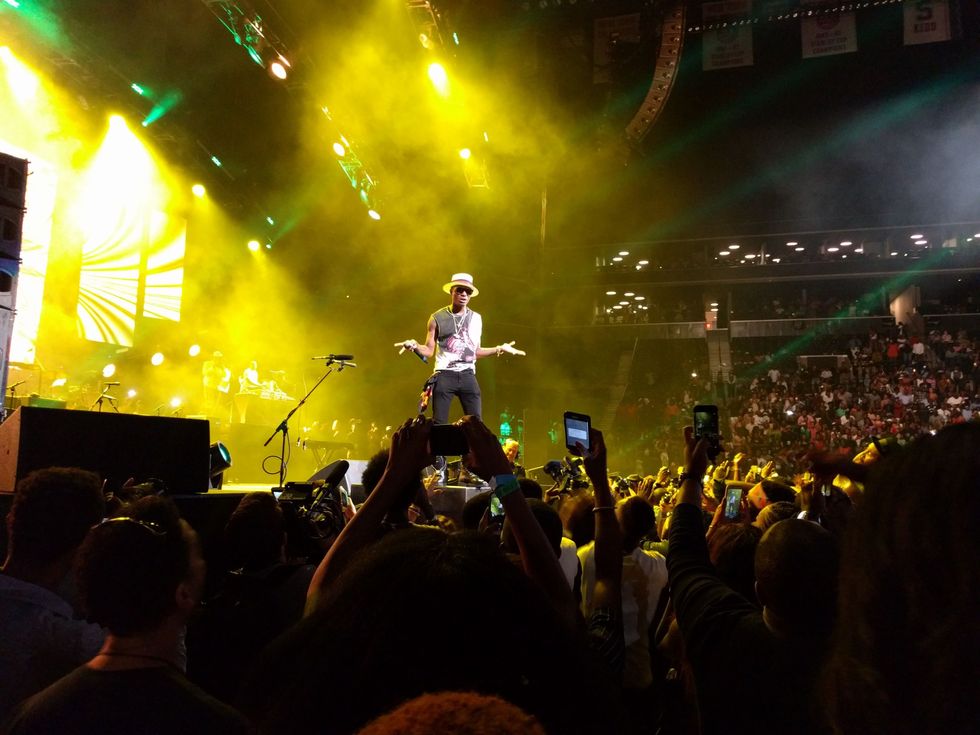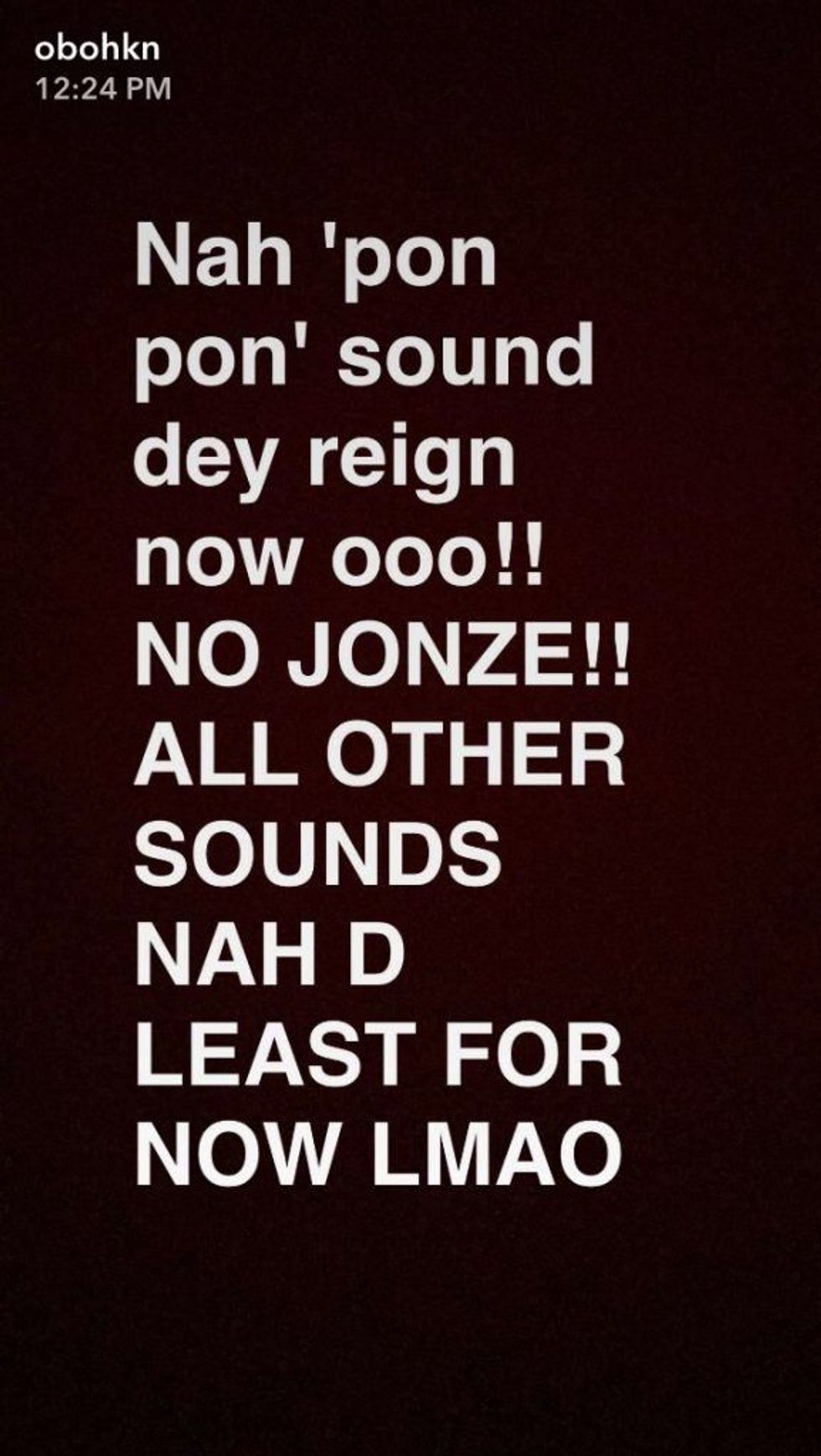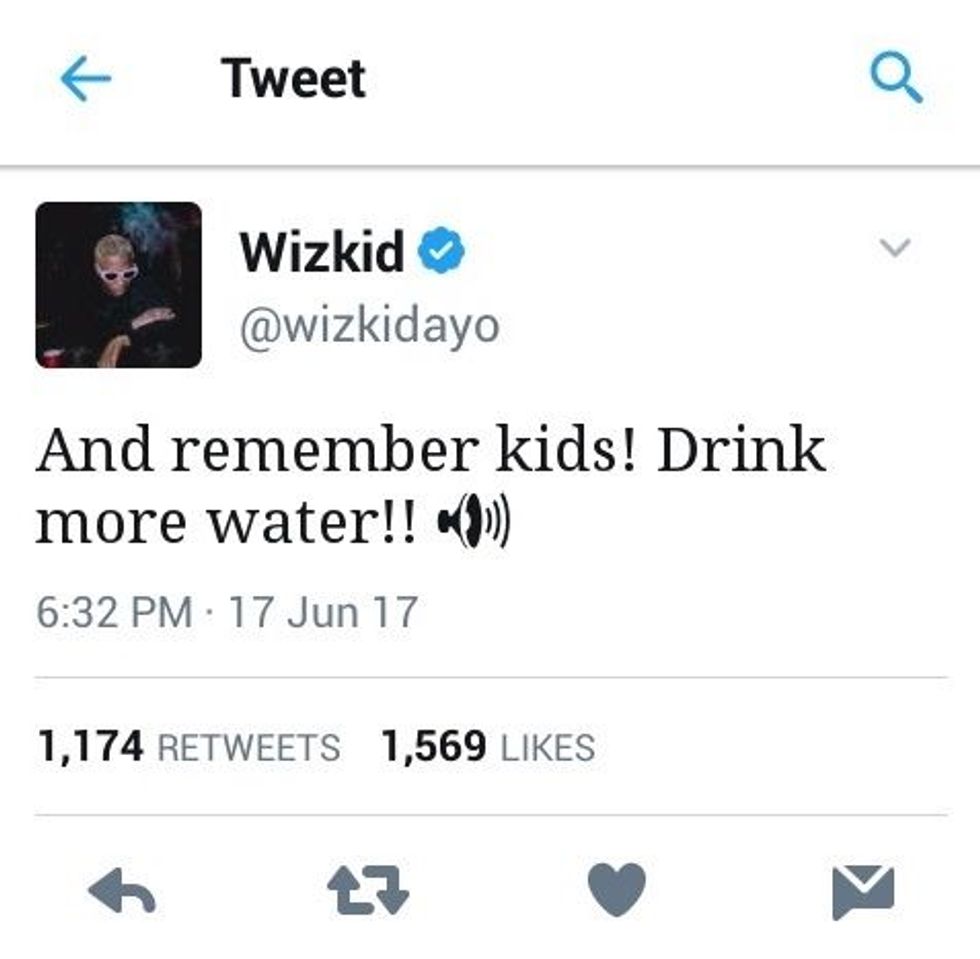The Davido vs. Wizkid Rivalry Is the Gift That Keeps On Giving
The big winners in the ongoing Davido and Wizkid beef are the fans, and the afrobeats genre as a whole.

In the past, the tensions between Davido and Wizkid, Nigeria's biggest music stars, were drawn along the lines of radio dominance, calibers of international collaborations and levels of talents.
Both artists have long anticipated albums coming up this year and the battle for whose project is superior was always going to be a talking point.
The surprise is that Davido, unprovoked as it seems, recently took unaddressed yet undisguised shots at Wizkid on his Snapchat.
The first salvo of a snap, fired by Davido, seemed to mock the songs so far released on Wizkid’s Sounds From The Other Side which include “Sweet Love”, “Come Closer” “Naughty Ride” “African Bad Gyal” and “Daddy Yo”—all of which Davido derisively described as “pon pon sound”.
Davido is right in suggesting Wizkid, in his march to international stardom, has leaned too heavily on the afrobeats-lite songs that don’t sound too distinguished from dancehall, with which the international markets are way more familiar.

Wizkid was a trailblazer just three years ago when Ayo dropped, packed with the freshest sounds in lead singles like “Show Me The Money” and “Ojuelegba.”
But then, he’d be squandering the momentum built on the stupendous success of “One Dance” with Drake and Kyla, if it wasn’t followed up by “Come Closer.”
And if Ed Sheeran, French Montana, Wale, et al. are the ones making hits off the “One Dance" challenge, one couldn't possibly fault Wizkid for wanting to partake on the craze he’d helped start.
Wizkid’s own response to Davido to “stay local or ***” is a dig and half-praise. “If” has been a wild success in Nigeria and it’s connected markets in other parts of West, East and Southern Africa, gaining back for Davido any grounds lost in his frustrated attempts to enter the international pop markets through his deal with Sony. Wizkid appears to have had less trouble doing so.
Davido’s decision to “stay local” has led to song like “If” and “Fall” which are surefire hits that make once surefire hits like “Aye” and “Skelewu” look like flickers (from memory, but in clubs and parties and work offices, a different matter).
“If” dropped in February and was still being rinsed on radio stations when it was followed up with “Fall” earlier this month. Few songs have had a similar stranglehold over the afrobeats scene in 2017, except for the likes of Runtown’s “Mad Over You” and “For Life,” and Ycee’s “Juice.”
As a result, both Davido and Wizkid have maintained their pole positions in the race for dominance, but at opposite and equally important ends of the spectrum—one the "international," the other “local”.
But even this isn’t a true representation of the positions each artist occupies. There’s no clear binary. Wizkid is still much loved and respected in Nigeria, and has become one of the country’s biggest cultural exports beyond the realms of music.
Winning the Best International Act: Africa at the recent BET Awards cements this fact. It's the perfect recognition in the lead up to the release of Sounds From The Other Side this July.
Davido’s dominance in African markets could said to be more vital to his career and to afro-pop as an industry unreliant on endorsements from outside the continent. To build on this, he’s just kicked off his “30 Billion World Tour” in Ukraine with the majority of dates in the US.
Neither artist has a complete hold on either the “African” or “international” markets. The big winners here are the fans of the music, and the afrobeats genre as a whole, who now have ambassadors practicing at the highest levels yet.




